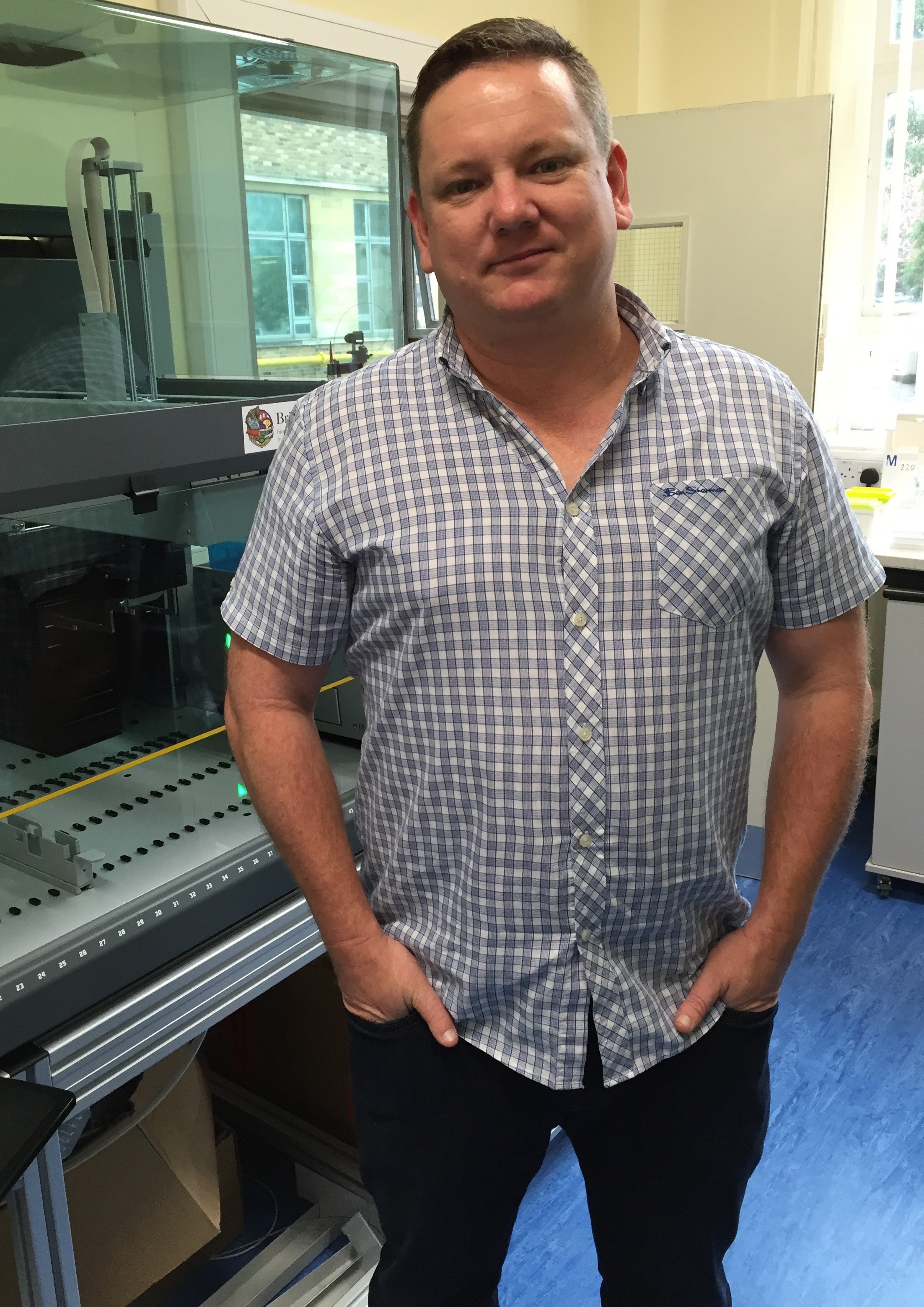Prof Adam Perriman, Senior Research Fellow in the School of Cellular and Molecular Medicine at the University of Bristol, is known for his pioneering research on the construction and study of novel synthetic biomolecular systems (hybrid bionanomaterials) using advanced physical techniques. Hybrid bionanomaterials can comprise highly cooperative biological and synthetic components that can be used to amplify or attenuate the assembly process in the damaged tissue, and the modular/systems methodology that underpins directed assembly can provide a mechanism for the development of non-traditional approaches to regenerative medicine.
Adam, together with his interdisciplinary team comprising Dr Paul Race (School of Biochemistry, University of Bristol), Prof Raimondo Ascione (Clinical Director Bristol Heart Institute Hospital, Bristol) and Dr Sabine Hauert (School of Engineering Mathematics, University of Bristol), used the Catalyst Fund award from the Elizabeth Blackwell Institute to design and construct novel protein-polymer nanohybrids that included introduction of special homing proteins into the cell membranes of adult mesenchymal stem cells (MSCs, the type of cells that can develop into a variety of cell types), a technique known as ‘stem cell painting’. This technique offers a significant improvement on other existing cell therapy methods (such as intravenous or intra-arterial infusion of MSCs), which commonly lead to undesirable accumulation of the cells at the lungs and liver, thus reducing the efficiency of systemic delivery and increasing the likelihood of producing potentially lethal microemboli.
Adam has now been named as one of the recipients of the UK Research and Innovation's (UKRI) new Future Leaders Fellowships. The initiative, which aims to support the very best early career researchers and innovators to help them tackle global challenges, was announced Tuesday 7 May 2019 by Chris Skidmore, Minister of State, Department for Business, Energy and Industrial Strategy.
In November 2019 it was announced that CytoSeek, a new spin-out from the University of Bristol, has raised £1.1 million in funding to develop next generation cell therapies that could open new ways to treat solid tumours and improve the lives of 18-million people worldwide who are diagnosed with cancer each year. Adam founder of CytoSeek, explains:
“At the moment cell therapies of this kind are only used in the treatment of cancers in the blood, such as leukaemia. We are looking at ways that cell therapy can also be used for solid tumours, which are responsible for 85% of cancer related deaths. To do this, we have developed a protein-based cellular paint that can be put on cells to improve their cancer-killing performance.
“In the last three years Bristol has created an incredible environment for the clinical translation of science to biotechnology, and it is fantastic to have local financial support. This funding will help us to rapidly accelerate the pre-clinical validation of the technology, which will help get it to the clinic faster.”
